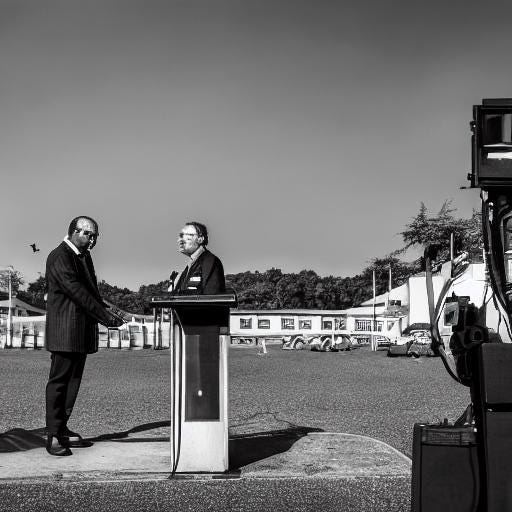My Biggest Elementary School Victory: Winning My First Spelling Bee
Because nothing motivates like a public victory.
As I mentioned earlier, I love words. In school, I usually aced spelling tests. I think the only spelling rule I had a hard time learning in the beginning was “I before E, except after C” (which, as most writers know, isn’t always true). I participated in a lot of class spelling bees throughout elementary school, but in sixth grade, I participated in my first school spelling bee.
I and two other girls in my class made it through all of our class spelling bees, so the three of us participated in the spelling bee along with several other fifth and sixth graders.
A few days after we found out we’d be in the spelling bee, the school reading specialist, Mr. Mackin, came by to give us the list of words we’d have to be able to spell and to let us randomly pick our first round word—the one word we’d know for the first round, so we’d all at least survive that round. Mine was “racetrack,” if I remember correctly.
I went home, studied, and practiced my spelling bee words with my mother, and I was ready on the day of the spelling bee. That morning, we all took our places, and Mr. Mackin introduced us. After that, the spelling bee started. We each spelled our first-round word.
After the first round, we started spelling words randomly picked by someone else—another student who accompanied Mr. Mackin picked words out of a hat and handed them to him. During the spelling bee, I spelled words like “mailbox,” “hireling,” and “lobsterman,” among others.
As the spelling bee progressed, people started being eliminated when they spelled words wrong, and my nervousness and anticipation grew.
Finally, it came down to me and another fifth-grader, and the rules changed slightly. We would go back and forth spelling words until one of us spelled something wrong. When one of us spelled a word wrong, the other would have to spell that word plus another to win the spelling bee. If we spelled the second word wrong, the other person would get a chance to spell the word.
So we went back and forth for a bit, spelling words, until Ryan, the other student, misspelled the word “soily.” I then had to spell that word right, plus another word. I slowly spelled out “soily” and spelled it correctly. Then Mr. Mackin asked me to spell “legal,” which I also spelled correctly. I can’t describe my excitement and pride as Mr. Mackin raised my hand in the air, showing that I had won my school spelling bee.
As the auditorium cleared out and I attempted to return to my parents, who were both there for the event, dozens of people congratulated me. When I returned to my parents, Mr. Mackin took a picture of the three of us for the poster on the school bulletin board for everyone to see. He also took a picture of me standing next to the runner-up.
When I returned to my classroom, I received even more congratulations from my teacher and classmates.
I don’t remember much about the following days, although I got congratulations from people for weeks after, including other friends’ parents, people in the community, and family friends.
After the spelling bee, I received an even bigger book of words that I would have to know for the test I took to determine if I’d be in the county spelling bee. I dutifully studied that list. My mother drilled me several times a week on it for a few weeks until it was time for me to take the test.
On the day of the test, I felt confident. I did my best, but unfortunately, I found out a month later that I had not done well enough to make it to the county spelling bee.
Still, winning my first spelling was a victory I’ll never forget, and one that still lives in my memory today.
Takeaways:
Practicing may be boring and repetitious, but it is necessary to reach a goal.
When you’re competing against others, go slow and think about what you’re doing until you feel more confident.



